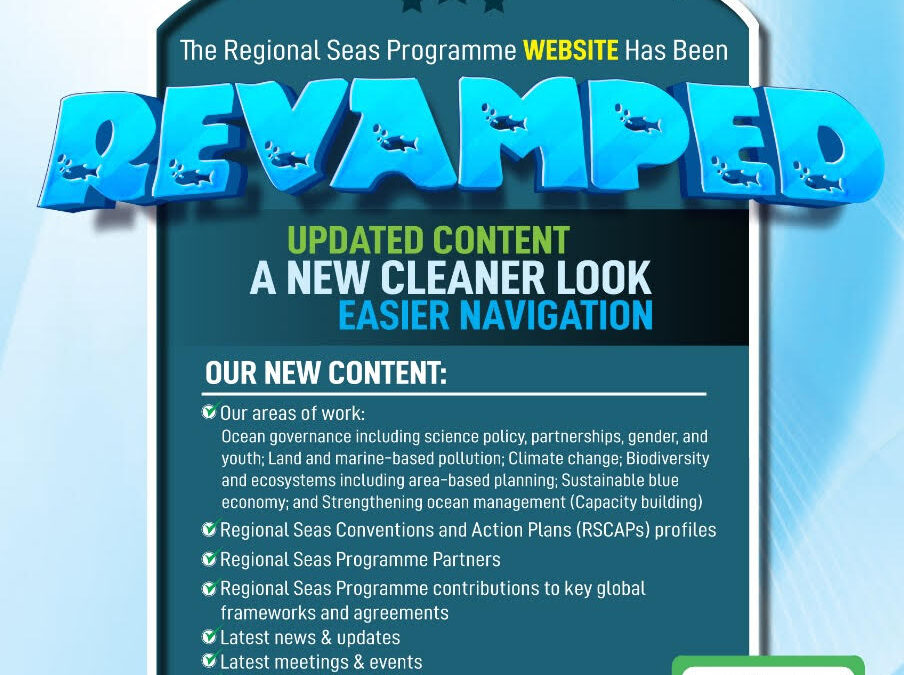The United Nations Environment Programme (UNEP) Regional Seas Programme announces the launch of its new website, featuring updated, informative content and enhanced functionality.
Launched on 29 April 2025 during the 10th Our Ocean Conference in Korea, the website serves as a digital hub for accessing information on ocean governance, legal frameworks, partnerships, and regional actions. It aligns with global commitments to leverage digital innovation for a sustainable ocean.
The new website improves access to critical information on ocean governance, marine conservation, and regional cooperation. It supports the conference theme, “Our Ocean, Our Action,” and its special agenda on “Digital Oceans.”
The revamped site offers an in-depth look at the 18 Regional Seas Conventions and Action Plans (RSCAPs) and their efforts in key areas such as ocean governance, land- and marine-based pollution, climate change, biodiversity and ecosystems, the sustainable blue economy, and capacity building.
Each RSCAP profile now includes details on organizational structure, legal frameworks, partnerships, key achievements, and regional highlights, providing stakeholders with a richer digital experience.
The website also showcases relevant Multilateral Environmental Agreements and Conventions, and highlights the Regional Seas Programme’s contributions to global agendas, including the Global Biodiversity Framework, the BBNJ Agreement, the Sustainable Development Goals, the UN Decade of Ocean Science for Sustainable Development, the UN Decade on Ecosystem Restoration, and the Paris Agreement.
The UNEP Regional Seas Programme is a global initiative that promotes the sustainable management and protection of shared marine and coastal environments through regional cooperation. For over 50 years, the programme has led action-oriented efforts across 18 regions, addressing ocean and coastal degradation through a “shared seas” approach.
Implemented via Regional Seas Conventions and Action Plans (RSCAPs), the programme engages governments, scientists, civil society, indigenous peoples, local communities, and youth to develop region-specific solutions supported by legal frameworks and targeted protocols.

